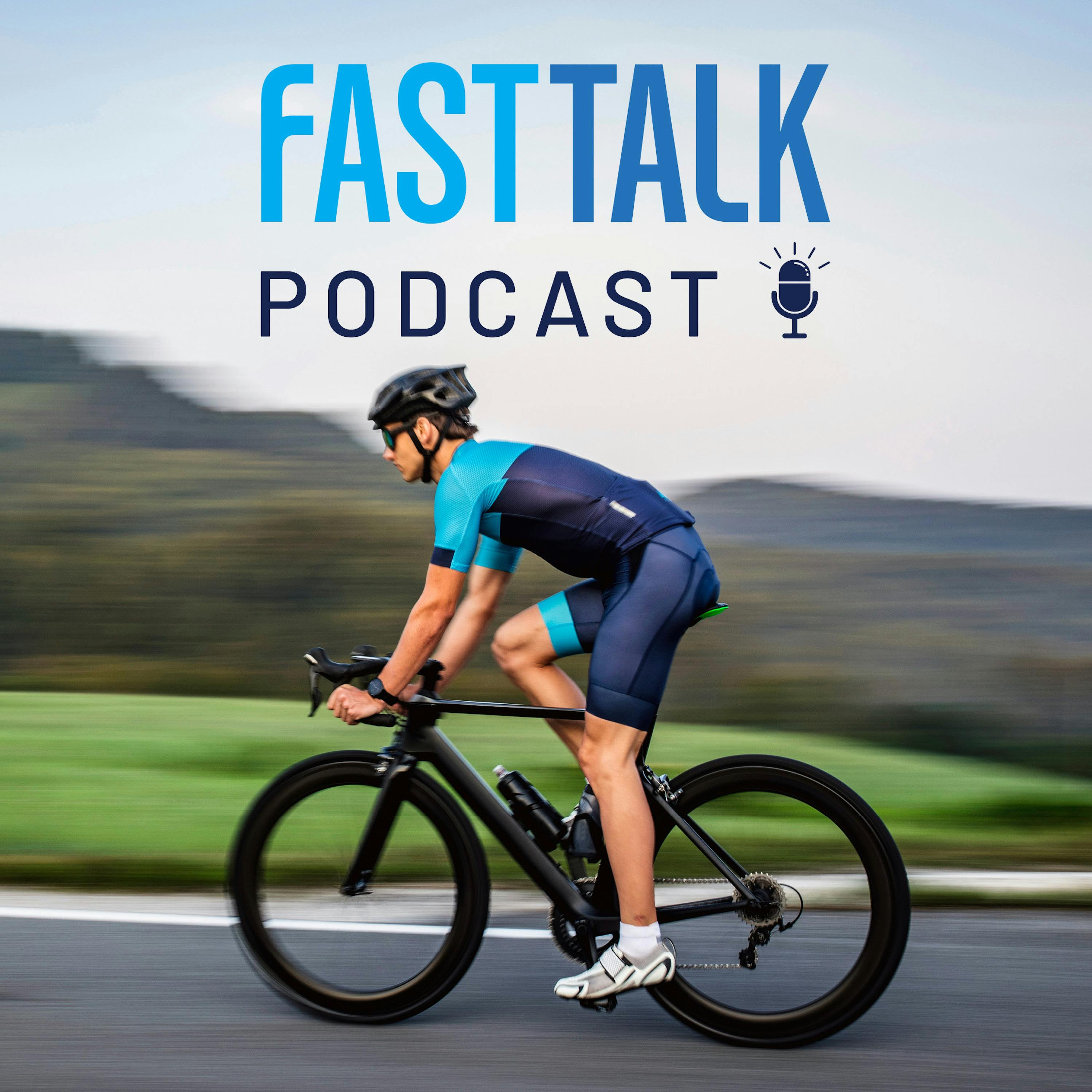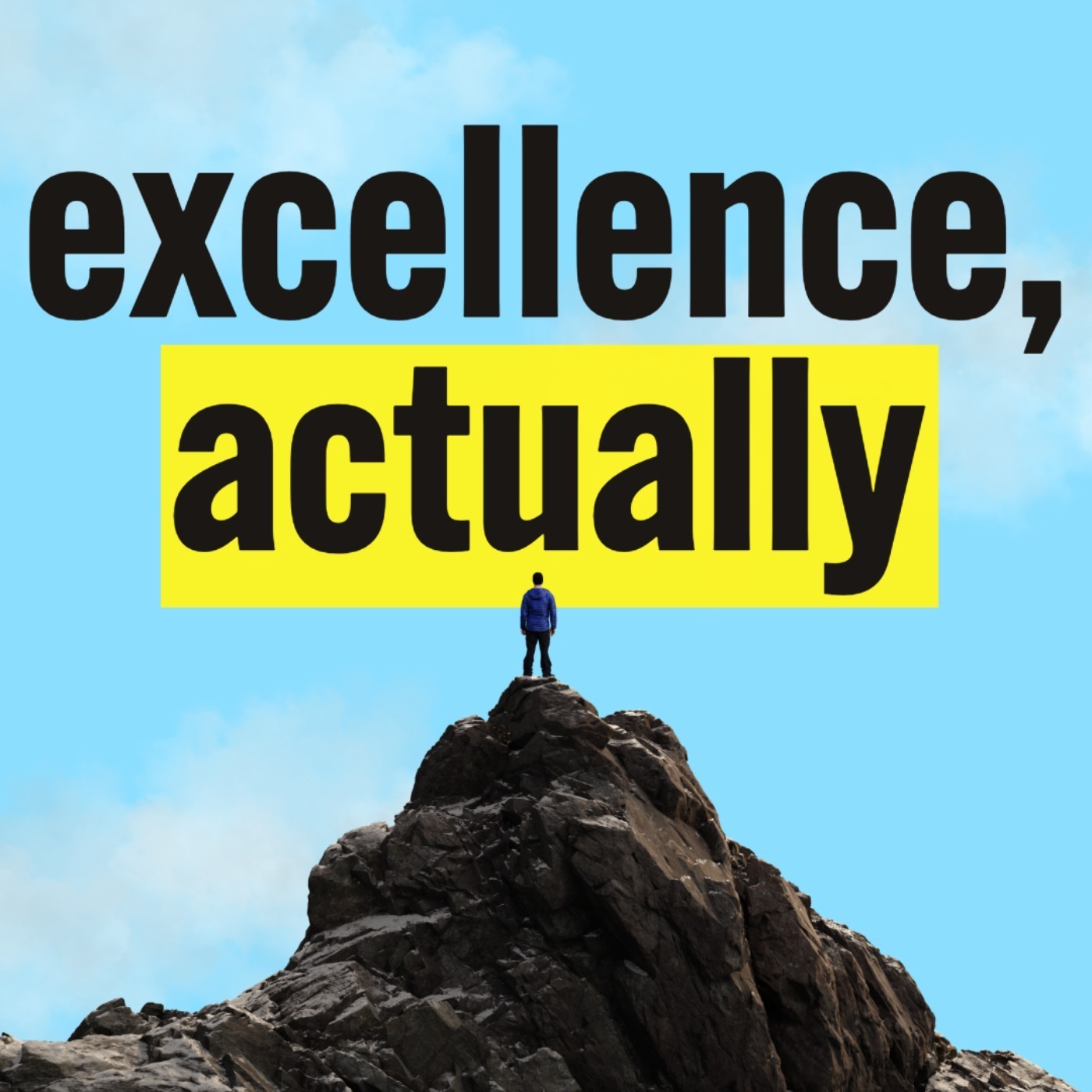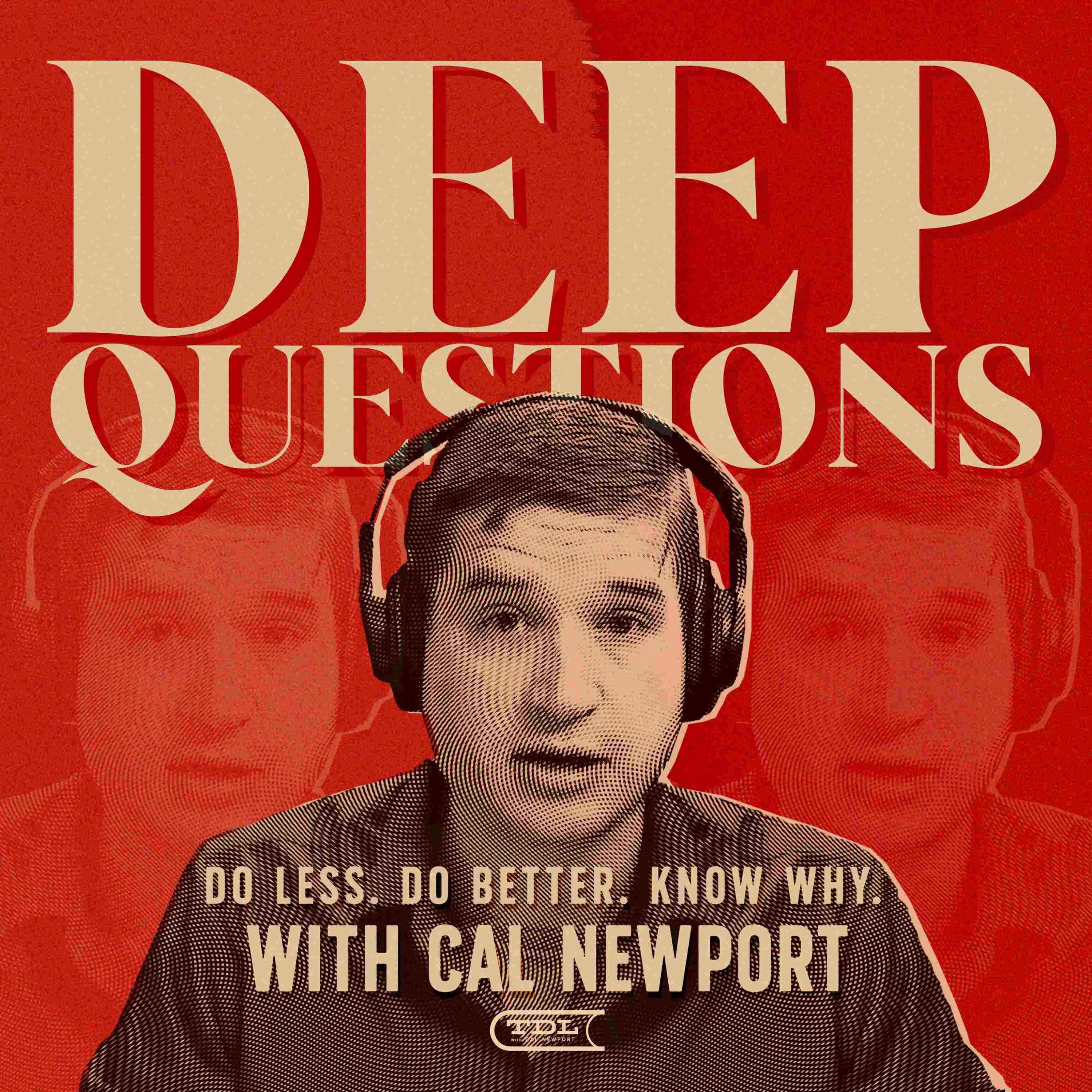
The Full Circle Podcast
The Full Circle Podcast offers listeners insights into topics and ideas pertaining to endurance sports training and racing. Hosted by Coach Laura Henry, this podcast releases episodes weekly and discusses training best practices, effective workouts, compelling research, coaching methodologies, physiology and recovery, and the best tools to help guide you unlock your potential and achieve your best performance.
The Full Circle Podcast is part of Full Circle Endurance, which is an endurance sports coaching company that serves athletes in many endurance sports, including triathlon, running, cycling, and open water swimming.
To learn more about how Full Circle Endurance can help you reach your goals, please visit us at: https://FullCircleEndurance.com/
The Full Circle Podcast
Finding Hope During Injuries, Illnesses, & Setbacks
Use Left/Right to seek, Home/End to jump to start or end. Hold shift to jump forward or backward.
Are you currently injured, sick, or experiencing some other setback that is keeping you from training?
The patience required to navigate times like these is very, very real. At times, it can feel like time has stood still and like the path forward is too long to face. Finding hope or something to look forward to may seem impossible.
And yet…it is possible. Yes, you can find hope and a path forward while you are injured, sick, or experiencing any other sort of setback in your training.
Read this Article:
https://www.fullcircleendurance.com/blog/finding-hope-during-injuries-illnesses-setbacks
Ready to start training? Check out our Coaching and Training Plan options:
Learn more about Full Circle Endurance: https://FullCircleEndurance.com/
Submit questions to be answered on the show: https://FullCircleEndurance.com/podcast/
Reach out to Coach Laura Henry: Hello@FullCircleEndurance.com
Disclaimer: The information shared in this podcast is for educational and informational purposes only and is not a substitute for professional medical advice, diagnosis, or treatment. Always seek the advice of your qualified healthcare provider with any questions you may have regarding a medical condition or health goals. Never disregard professional medical advice or delay in seeking it because of something you heard on this podcast. Reliance on any information provided is solely at your own risk.
(0:04 - 1:33)
Hello and welcome to the Full Circle Podcast, your source for insights into the science and art of endurance sports training and racing. I'm your host Coach Laura Henry. Today is Coach Tip Tuesday.
This past weekend I was working at Melovelo Bicycle Shop in Syracuse when my friend and local cycling legend Ben Rabin walked in. I've known Ben for a long time now. When I was struck by a car while I was riding my bicycle in 2012, he represented me in my case against the driver.
He was also on the group ride on that fateful day in 2015 when I catastrophically broke my left arm. Needless to say, Ben has been around for some of the most, we'll call them interesting, happenings in my life. Ben, who is locally known as Ben Rabin Bike Lawyer, has established a law practice that serves those who have been injured in bicycle or motorcycle accidents and he is dang good at his job.
Over the years, in addition to representing me in several legal matters, he's also become a friend and so I was thrilled to see him in person and to catch up with him. We got to talking about how quickly the years have passed since we first met each other, which led me to reflect on how time is so relative. Sometimes it passes slowly.
Sometimes it passes quickly. But no matter how fast or slow it seems to go by, one thing is for sure. Time passes.
(1:34 - 6:08)
And so, especially given our conversation and the fact that Ben has been present with me for some of the more significant moments in my life, I got to thinking about this and about how time passes relative to quote-unquote big events that happen in our lives. And considering that I just offered advice about how to return to training after being injured in last week's Coach Tip Tuesday episode, number 74, the emotional and physical experience of being injured and how we as endurance athletes experience the passage of time as we navigate an injury or an illness has been on my mind quite a bit lately. Do you remember what you were feeling and experiencing four years ago today? I do.
Four years ago today on January 28th, 2021, my beloved Boppy's heart stopped beating and he died. He had contracted COVID-19, the OG alpha variant, a month earlier, and ultimately he could not survive it. I cared for him during the initial couple of weeks of his illness, and by doing so, I knowingly and willingly exposed myself to the virus, thereby contracting it myself.
I was the sickest I've ever been in my entire life. In addition to a plethora, literally all, of the other symptoms, I had a fever for 14 consecutive days, which broke a mere four days before Boppy died. Dark days followed for so many reasons.
Four years ago, January 2021, kicked off what was beyond a shadow of a doubt, the hardest year of my entire life to date. COVID-19 was destined to impact and transform my life profoundly, and I'm not referring to the government restrictions or the cultural changes that the virus catalyzed, which is what so many people mean when they say, due to COVID, the virus itself, a wee beastie, a tiny microscopic entity, was destined to permanently alter my life. Not only did it cause Boppy to die, but it profoundly impacted each of my immediate family members, who all got sick at the same time.
All of us who didn't die when we had COVID-19 have long-term, permanent impacts from the virus, to include cardiac and neurological complications. But at that time, four years ago, all I knew was that I had been incredibly sick, that the same illness I appeared to be surviving had killed one of the people I loved most in this world, that I didn't have any energy, literally, dragging a chair six feet exhausted me and required me to sit down and rest, and that feeling anything other than pretty terrible seemed like a pipe dream. Any path forward felt non-existent, let alone hopeful.
I started working with Coach Adam Ruszkowski, who is a doctor of physical therapy, in March 2021 to help manage my long COVID. Even with all of the experience I had and have coaching athletes through injuries and illnesses, I knew I could not do this alone for my own self. Every coach needs a coach.
Coach Adam had a working hypothesis at the time that has since been accepted by the larger community of medical providers who treat long COVID patients, that strength training would be the best thing to start with as far as activity and or exercise went for me, since strength training strengthens the nervous system, which is where fatigue lives. We started with easy strength training and built from there. It took five months of us working together, so seven months total from when I was sick, for me to be able to resume cycling.
It took seven months of us working together, so nine months total from when I was sick, for me to be able to start running again. Due to some of my long COVID symptoms, I've never been able to resume swimming. At times, those days and months in 2021 felt interminable.
How would I ever be able to do a workout again when I was so fatigued that I needed to take three naps a day in addition to the nine to 10 hours of sleep I was getting per night just to get through my workload for my job? How could I possibly imagine running again when I couldn't even go for a walk without my heart rate skyrocketing? How could I conceivably ride a bike again when I couldn't turn my head to the side, which is a very important thing to be able to do while cycling to look for cars and other threats, without feeling dizzy and disoriented? Yes, indeed. There were days when I felt like I was deep in a tunnel without any sign of light, let alone a light at the end. And so 2021 passed with absolute glacial slowness.
(6:08 - 10:06)
How many of us have been in a similar situation? Maybe you haven't been as severely ill as I'm describing I was, but you probably have been injured, emotionally devastated, or have faced some other scenario in your life that altered your daily existence and or caused you to question whether you could actually feel mentally and or physically better or quote unquote normal again. And your perception of time as you're experiencing something like this was probably similar to what I'm describing. It probably felt like an eternity.
As an athlete myself, I have had my fair share of significant injuries and illnesses that have rendered me incapable of doing many of the things that I love most, running, cycling, swimming, and strength training. As a human, I have experienced illnesses, injuries, emotional hurts, and physical wounds that had rendered me incapable of functioning normally. As a coach, I have walked alongside hundreds of athletes as they have navigated situations like this.
In fact, just as I sought out coach Adam when I was in my lowest of lows, many athletes hire me when they are experiencing a trying time and are seeking help finding that path forward. Injuries and emotional trauma tend to be catalysts for athletes to seek out a coach. While I love helping athletes and I am convinced that this is the work I was meant to do, I hate that they're being injured or experiencing a very difficult time in their lives is the reason that I often meet many athletes.
What I've learned through my experiences as a human, an athlete, and a coach is that there are indeed periods of time in our lives that seem very dark and like they will stretch on for all eternity. I've experienced firsthand how slow progress can feel. So slow that it can feel like you're going backward instead of forward.
And yet, I've also learned that time passes. Progress does get made. And one day, you're four years into the future, talking to a friend at a bike shop and looking back and marveling at how quickly and yet simultaneously, very paradoxically, remembering how slowly those years went by.
Four years. It's been four years since the last time I told Boppy that I love him. I've had long COVID for four years.
It's been four years since I could train quote-unquote normally without significant modifications or restrictions. This is the same amount of time that I was in high school. It's the same amount of time I spent at Ithaca College earning my bachelor's degree.
It's the same amount of time in between leap years. Quite frankly, I'm currently marveling at the fact that it's been four years. While I have a very clear memory of how slow the time was passing in 2021, it also feels to me like January 2021 was just yesterday.
I know what it's like to feel and to be surrounded by darkness. And I also know what it's like to see and feel the light. In the world of endurance sports, anytime we are forced to take a break from workouts and when we experience a loss of fitness, it can feel like we will never get to where we want to be, which is a very dark feeling indeed.
However, one day follows another. One week passes and another begins. Another month goes by.
Then the years go by. Each day, week, month, and year that passes speeds up the pace of the changes that you are experiencing. And while those first days may have felt like years, as that time passes, you begin to see that what seemed impossible, getting better, seeing progress, was indeed possible.
I started my return to exercise, fitness, and training with strength training after having COVID-19. Then after a bit of time doing that, I was able to venture out on my bicycle for easy half-mile loops of the street where I live. Eventually, I could resume embarking on cycling adventures that took me out of my neighborhood.
(10:06 - 13:27)
Then I was able to start running again by implementing a run-walk strategy. Eventually, I was able to start participating in races again. Then I was able to set goals at races again.
Bit by bit, day by day, week by week, month by month, slowly by slowly, by not doing too much too soon, I was seeing progress. I had to make sure I was referencing appropriate timelines, AKA not expecting to see progress day over day, but progress was there. Sometimes things do happen in our lives that render us incapable of ultimately seeing all of the progress that we might want or imagine or wish for ourselves.
COVID-19 did this to me. To this day, four years later, I still cannot run more than five minutes at a time without needing to walk for 90 seconds. I need to keep my average heart rate under 130 beats per minute while I'm riding a bicycle.
I get disoriented, to say the least, if I try to swim, and I cannot tell if I'm up, down, left, or right. While I've never regained my pre-COVID-19 fitness, despite consistently doing what I can for these four years, and I've never been able to return to training the same way I did before I got sick, and I likely never will, I have been able to see progress and get to a point where I can consistently integrate the activities I love most into my daily life once again. Progress was absolutely made from where I started from in January 2021, and for that, I am beyond grateful.
This is what we learn through training for any endurance sports goal. We set a goal, usually a race of a particular discipline and distance that is sometime in the future. We are sometimes, maybe oftentimes, intimidated by our own goals because we are not able to currently achieve them at the time that we set them.
And this, the fact that the goal isn't something we can do, and the fact that it is something that we will need to work for, is exactly what makes them worth striving for in the first place. But we trust the path forward, and we trust the process. And then six months, a year, or maybe even several years down the road, we find ourselves standing on the start line, then crossing the finish line, and thus able to achieve what once seemed impossible.
The same principles that we apply to endurance sports training when we are healthy, consistency, perseverance, pragmatism, and a little bit of faith, are the same things we need to apply in periods of time when we are experiencing an injury, an illness, or any other setback. If you are injured, recovering from an illness, struggling with your mental health, or experiencing any sort of setback, know that doing something matters. That perseverance matters.
Stick it out, even if you can't see the progress today. Do the next right thing for you, and then do the next one. Making those small deposits will add up over time.
And believe me when I say that you'll look up one day and realize that a significant amount of time has passed faster than you could have imagined, and that one day the dark days will be a memory. That was another episode of the Full Circle Podcast. Subscribe to the Full Circle Podcast wherever you listen to your favorite podcasts.
(13:27 - 14:02)
If you like what you listen to, please be sure to leave us a rating and review, as this goes a long way in helping us reach others. The thoughts and opinions expressed on the Full Circle Podcast are those of the individual. As always, we'd love to hear from you, and we value your feedback.
Please send us an email at podcast at fullcircleendurance.com, or visit us at fullcircleendurance.com backslash podcast. To find training plans, see what other coaching services we offer, or to join our community, please visit fullcircleendurance.com. I'm Coach Laura Henry. Thanks for listening.
Podcasts we love
Check out these other fine podcasts recommended by us, not an algorithm.

Fast Talk
Fast Talk Labs
excellence, actually
Steve Magness, Brad Stulberg, & Clay Skipper
Deep Questions with Cal Newport
Cal Newport
